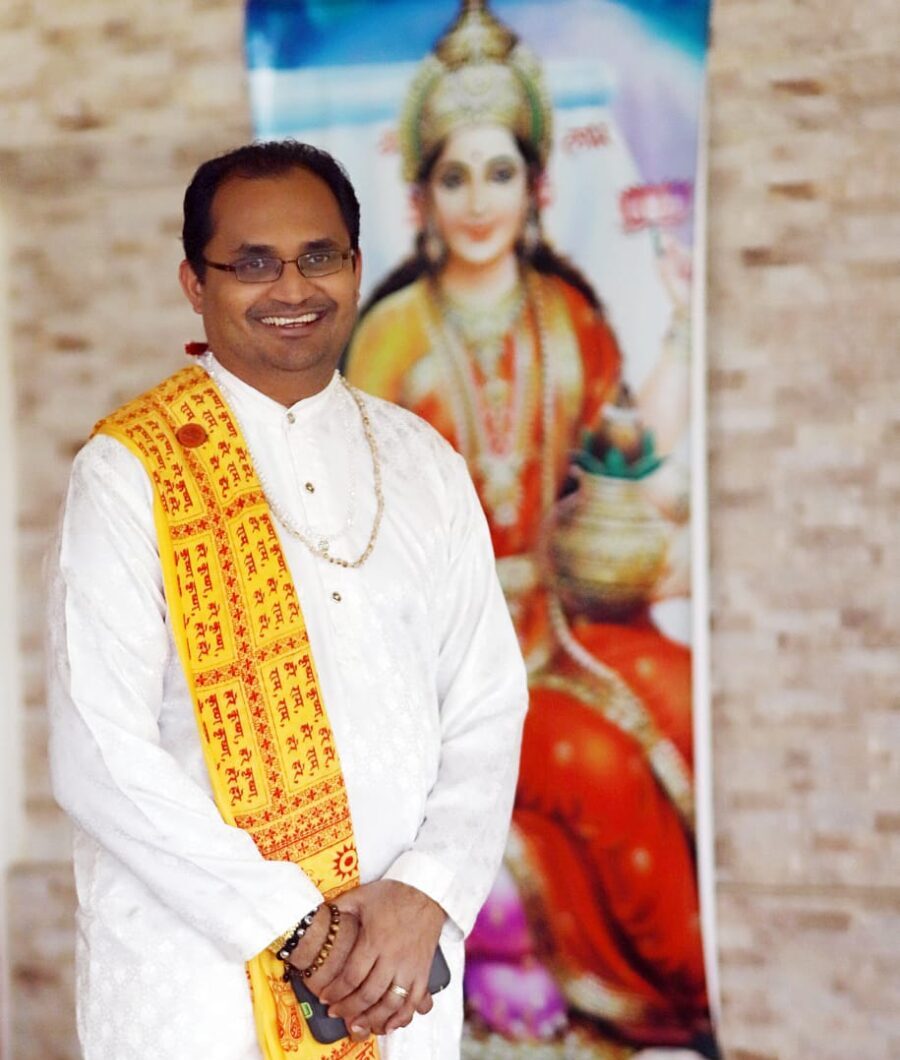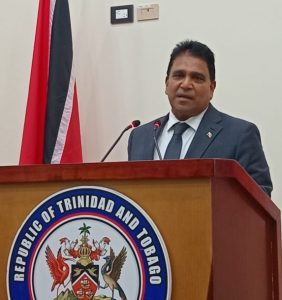By Chantalé Fletcher
CHAGUANAS West MP Dinesh Rambally says that another Divali will be celebrated during the Covid-19 pandemic.
He said, “As we celebrate Divali during another pandemic year, we must once again deviate from our traditional practices of gathering together to light hundreds and thousands of deeyas with our friends and family across Trinidad and Tobago.”
Rambally was speaking during virtual Divali Nagar celebrations on Sunday. Divali will be celebrated on Thursday.
He said Hindus have integrated fire into all significant rituals and no pooja or yagna is complete without fire.
Rambally said, “Let us all remember that like the many, many flames that shine brighter on the darkest night, we too can shine brighter when we recognise our oneness and our togetherness as we aspire to reach extraordinary heights.
“May the fire of Divali burn brightly in your hearts on this occasion and throughout your lives.”

He said, “Fire was one of the five elements or panch mahabhutas, which make up the body, and in fact the entire creation in the Hindu tradition.
“So, too are earth, water, air and ether. It is only when we die that the fire element in our bodies dissipates completely as fire, along with the other elements, keeps us alive.”
He also noted that the modest clay lamp with coconut oil and a cotton wick (a deeya) became a celebrated worldwide festival, that made its way into the White House in America.
The MP added, “Perhaps, there was nothing so modest about fire.”
Rambally said that humans have always regarded fire as a significant feature of any important experience, from the source of food to celebrations.

He said, “On Divali night, we consciously light as many deyas as we can, not just to dispel the physical darkness, but to dispel our very commonplace and humdrum aspirations in exchange for something that is more essential and worthwhile to our very existence.
“When we see the light of the thousands of deyas, we cannot help but stand in awe of that Goddess who presides over light, Lakshmi Mata, as she freely gives to us all, wealth, victory, knowledge and offspring, just to name some.”

Rambally added, “In the presence of the rows and rows of deyas, we cannot help but notice that there is an inexorable one-ness of fire even in the apparent multitude of flames. And this is perhaps the quintessential lesson for us all that despite our apparent separateness, we are all still one. One people, one humanity.”
![]()












